At the 80th annual conference of the Polish American Historical Association held January
4th through 6th, 2023 in San Francisco the 2022 awards were announced which recognize individuals or groups for their contributions in Polish American research, publications, cultural, artistic, and social life. The annual meeting was held in conjunction with the American Historical Association. The attendees at the awards banquet were welcomed by Dr Marta Cieslak, President of PAHA and the awards were presented by Ewa Barczyk and Joshua Blank of the PAHA Awards Committee.
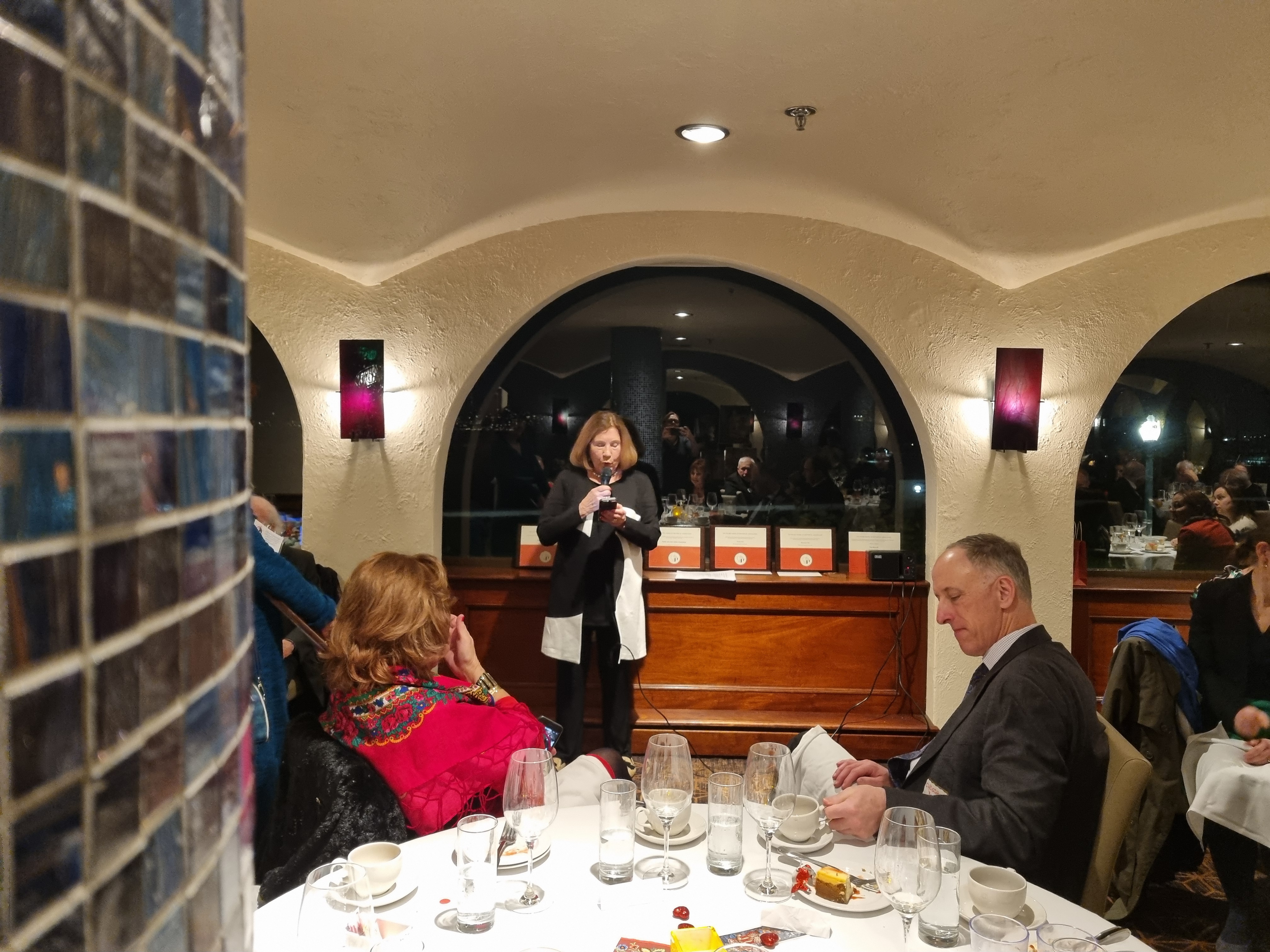
Amicus Poloniae Award given to individuals not of Polish descent dedicated to the cause of Polonia
Ricky Huard, Editor-and-Chief at Ohio University Press and de facto acquisitions editor for Polish and Polish-American Studies Series. Previously he had served as the copyeditor and proofreader of the series. Rick served ably and meticulously and then was promoted to current role and despite his numerous moves in the Press, he retained the series in his portfolio due to his love of it. He has been and continues to be an enthusiastic supporter, defender, and friend of the series and of PAHA and has attended PAHA events at the AHA and supported and assisted in signing up the Kosciuszko Foundation as a series funder.
Skalny Civic Achievement Award honors individuals or groups who advance PAHA’s goals of promoting research and awareness of the Polish American Experience.
- Jim Mazurkiewicz
Prof. Jim Mazurkiewicz is a fifth-generation descendant of Polish emigrants, a naturalist, expert in animal sciences, economist, agricultural advisor, educator (Texas A&M). He has been very active in initiating and promoting student and civic exchanges with Poland and furthering Polish history and culture in Texas. He is the President of the Polish American Council of Texas (PACT), Co-founder and member of the Polish American Chamber of Commerce in Texas, founder of the Association of Students of Polish Association at Texas A&M University. Among his many prizes and recognitions for his work in Polonia and Poland, Dr. Jim has been honored several times by the Polish government for his work, teaching, and leadership in Agri-Science at Texas A&M with the “Knights Cross of the Order of Merit” and " Stanisław Kaszubski” medal. He is an outstanding role model for Polonia and is deserving to be recognized with the Skalny Achievement Award.
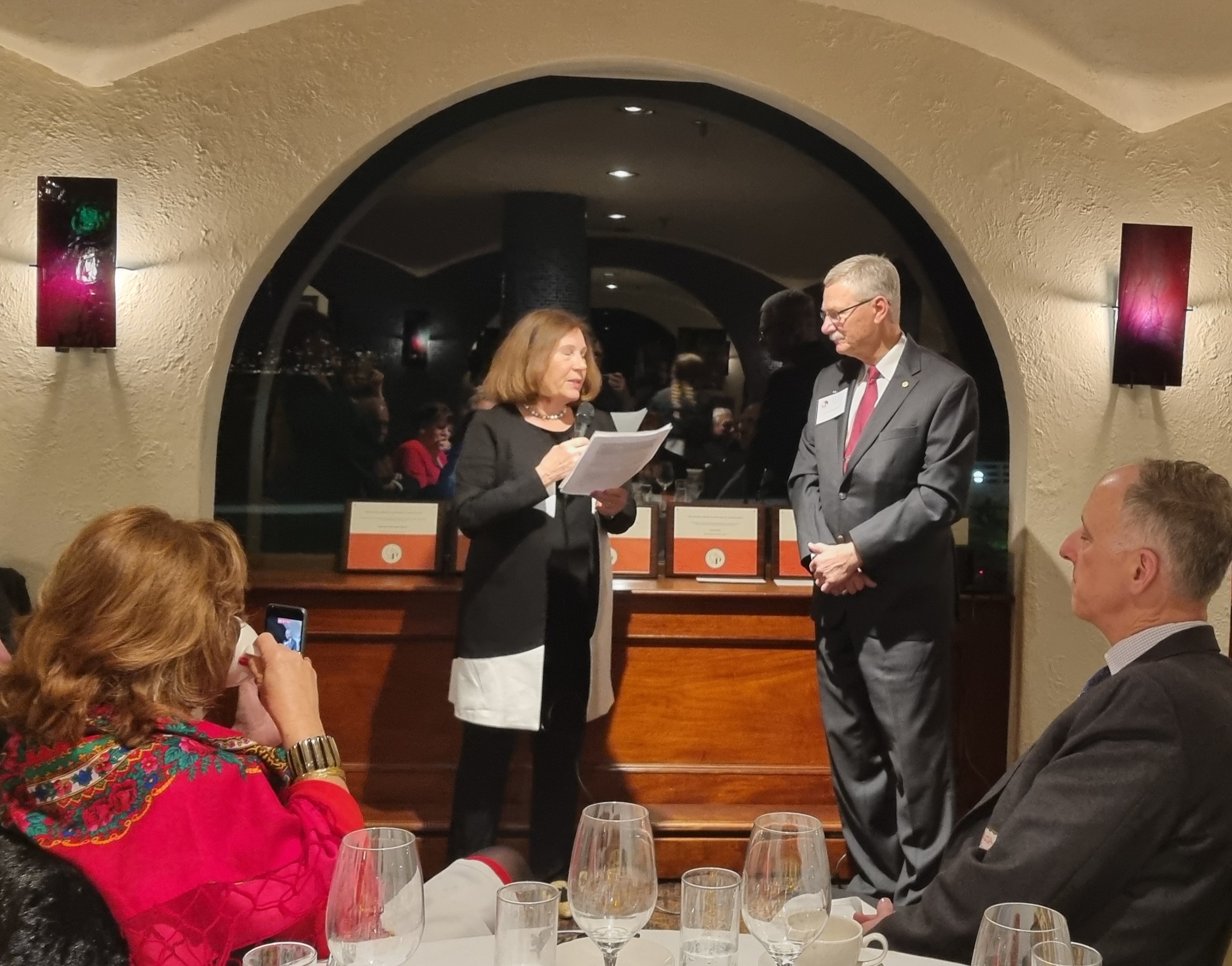
- The Polish Club, Inc. of San Francisco
The Polish Club has served the Polish Community of the Bay region since 1926 and is housed in a historic house built between 1886 and 1900 It focuses on the promotion of Polish culture, art, language, and community and contains a library with numerous historical documents regarding the earliest Polonia settlers in California as well as correspondence with Sienkiewicz and Modjeska among other historical figures. Three organizations formed the backbone of the Polish Club: the Polish Society (established in 1863), Polish Literary and Dramatic Circle (1926) , St Stanislaw Benevolent Society (1889) which joined together and established the Polish Club The local dance group Lajkonik also holds their meetings and rehearsals in addition to lectures, concerts, Ukrainian film festival.
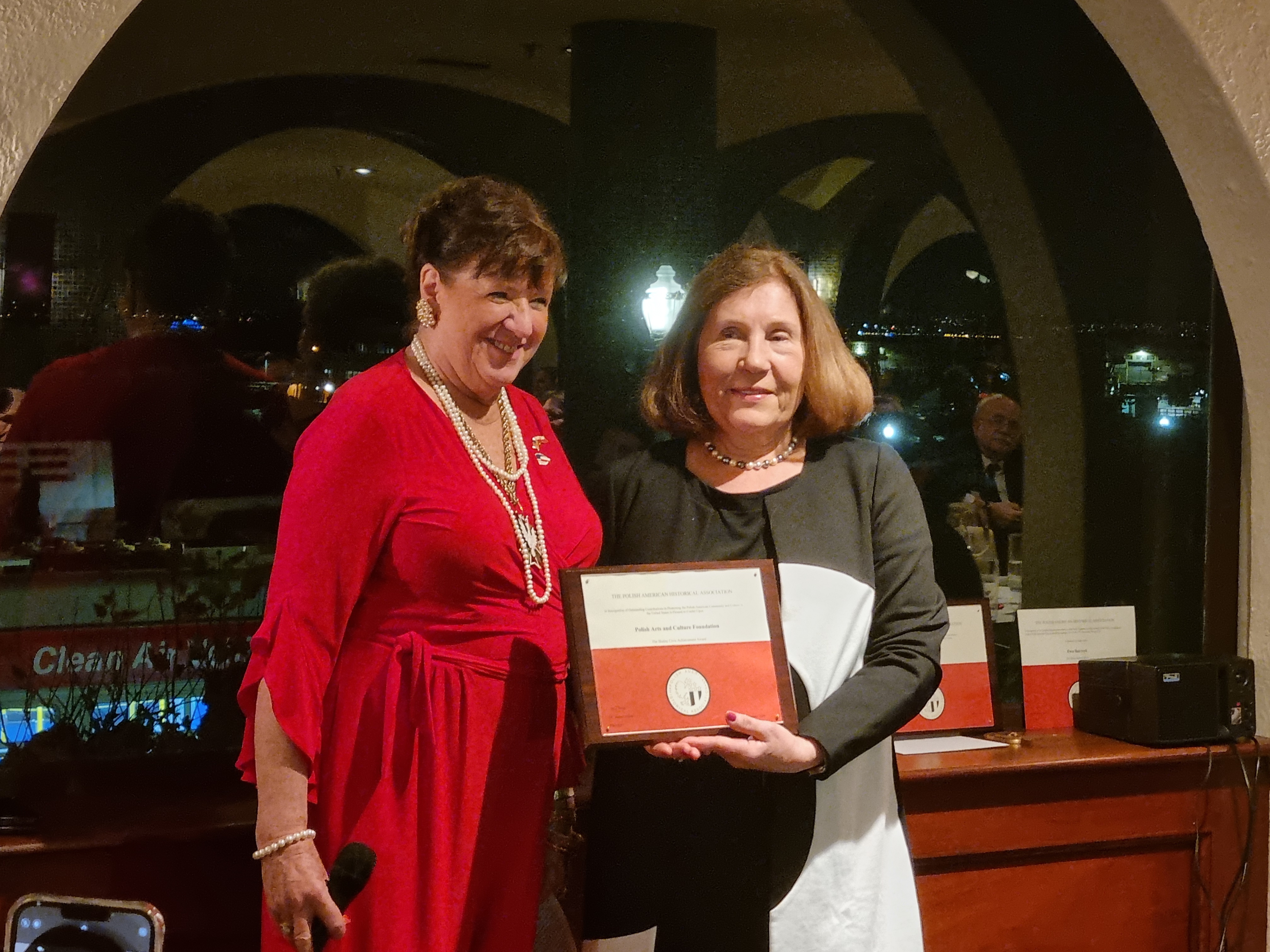
- Maureen Mroczek Morris
San Francisco native Maureen Mroczek Morris typifies the unsung heroes (and heroines!) whose often unrecognized work keeps the civic institutions of organized Polonia running. An amateur genealogist, she is a go-to person for information on the history of northern California Polonia and current Bay-area Polish affairs. Her volunteer activity with the San Francisco Dom Polski and Polish club keeps these community institutions operating smoothly and regularly as a hub for San Francisco Polonia cultural, social, and civic activities, including films and musical events and Ukrainian relief. She is a long-time PAHA member, and regular contributor to Polish activities, organizations, and causes, Maureen typifies those many individual members of Polonia who, often without formal position or office, are the bedrock of Polish American ethnicity. She is a consummate volunteer at the Polish Club doing weekly property management work to the Club and maintains the website for the Club and is the Club Treasurer.
She has written a book with Mr. Lynn Ludlow about Piotrowski, Sienkiewicz and Modjeska.
Her ongoing volunteer activities and deep knowledge of Polonia of the area leave no doubt that she deserves this recognition.
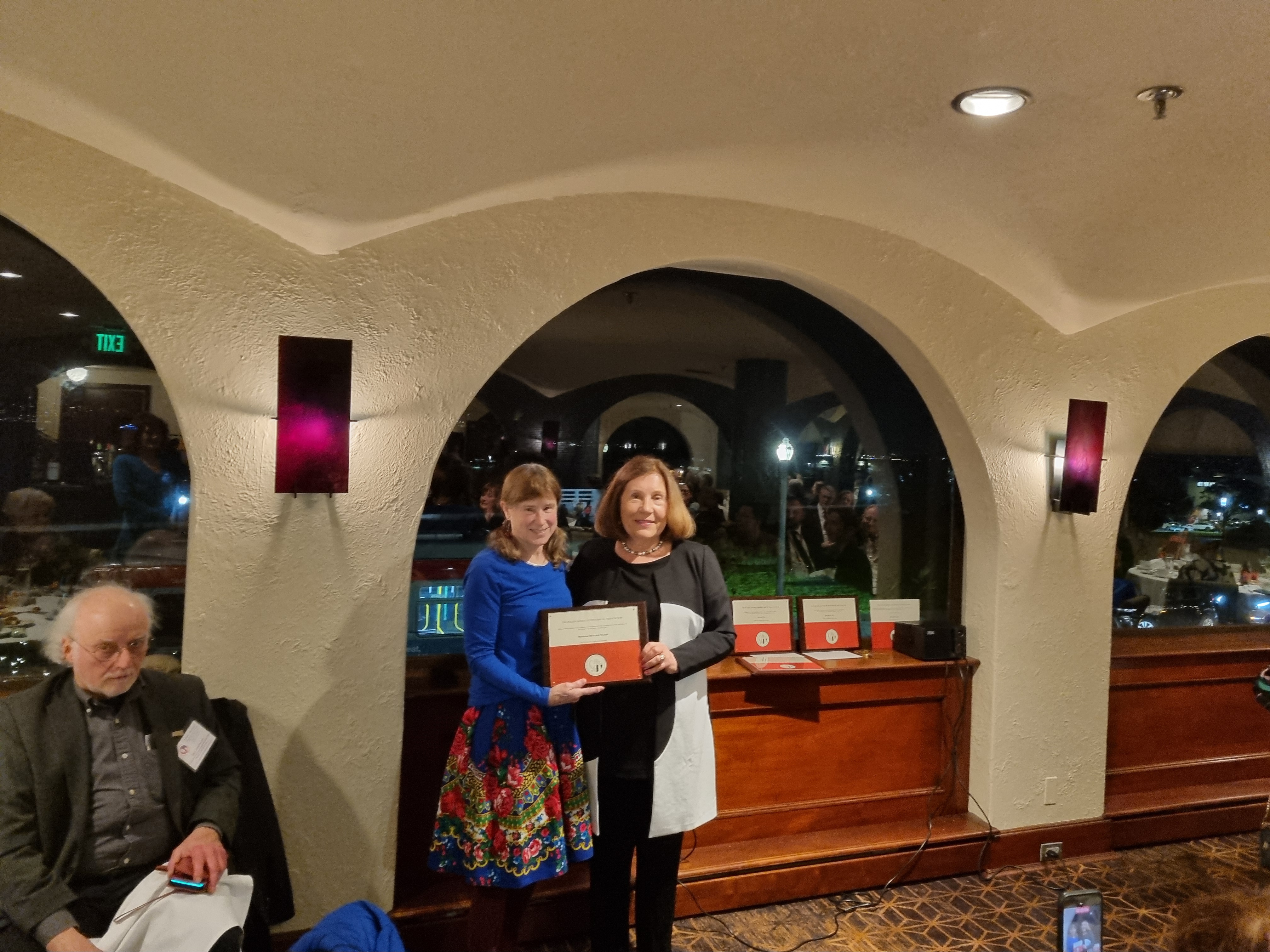
- Polish Arts and Culture Foundation
Founded in 1966 by Wanda Tomczykowska, the PACF has been celebrating 57 years of promoting the richness of Polish heritage, through exhibits, lectures, films, seminars, concerts, networking and by making available pertinent information about Poland to the San Francisco Bay area. It is a non-profit, non-political, and non-sectarian organization, whose existence and efforts have been supported by hundreds of loyal Polonia members. PACF spearheaded the Splendor of Poland Cultural Events Committee offering the Bay Area over 30 cultural events during the Fine Arts Museums of San Francisco's 10-week exhibit at The Legion of Honor "Leonardo DaVinci and the Splendor of Poland". They hosted an annual Polonaise Ball and have regularly participated in the Paderewski Festival in Paso Robles and the SF Chamber Music concerts when Polish artists perform. They have coordinated visits to San Francisco for many international dignitaries, including two Polish Presidents. The current president, Caria Tomczykowska, daughter of the eminent foundress continues the mission of the foundation.
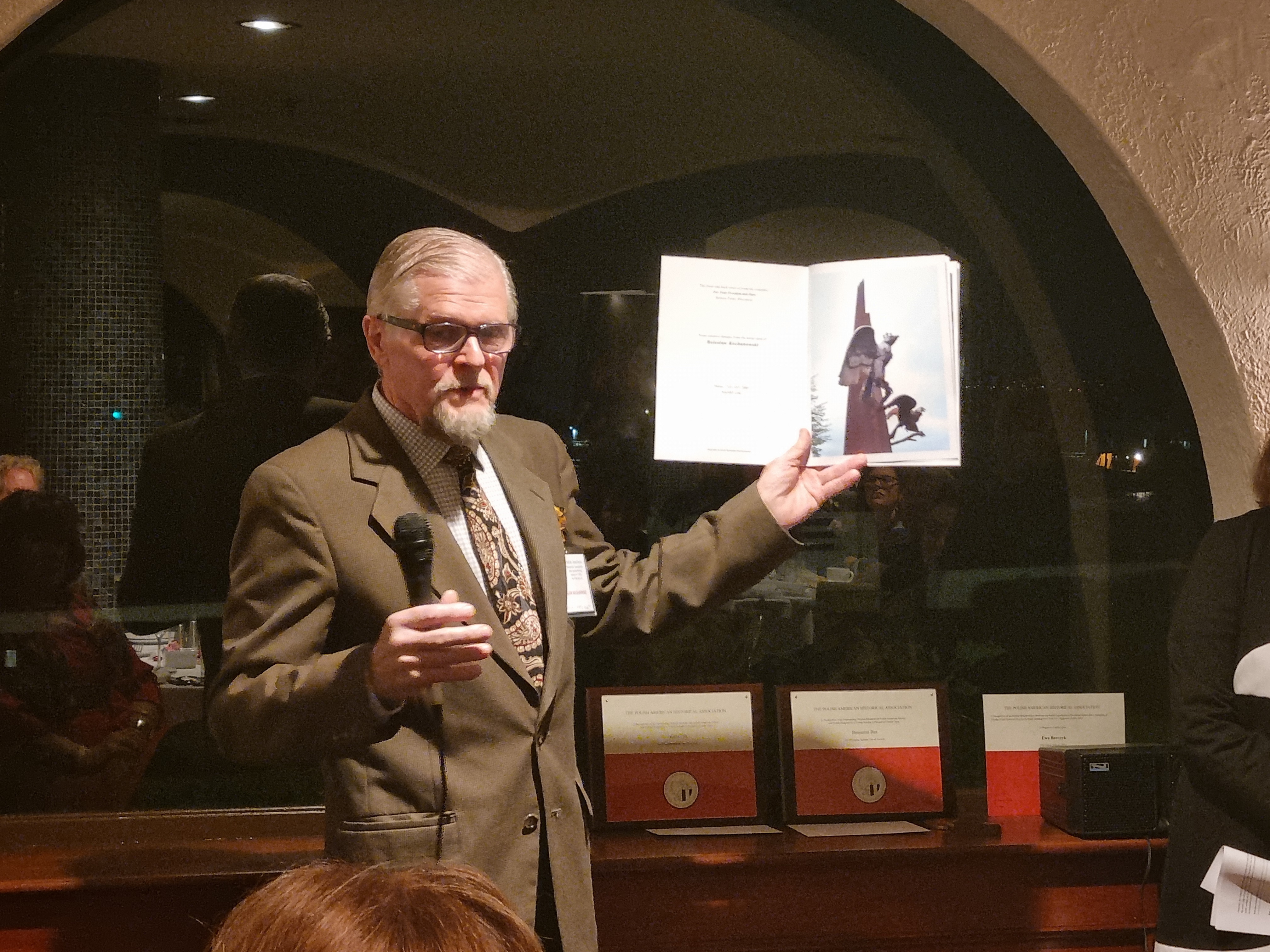
Creative Arts Prize recognizes the contributions in the field of creative arts by individuals or groups who have promoted an awareness of the Polish experience in the Americas.
Boleslaw Kochanowski
Kochanowski is a third-generation Polish American blacksmith and artist with numerous public art works on display. Boleslaw's wrought iron projects include architectural ironwork/functional art, home decor and fine art. He desired to show the Polish influence in America through a design of a sculpture to convey that history. He was asked to design a sculpture for the Polish garden section of the Sister City Park in Stevens Point, Wisconsin. Kochanowski named his design For Your Freedom and Ours. “I decided to incorporate the American bald eagle and the Polish white eagle as they were preeminent iconic symbols of these two nations. Placed on tall spires, the eagles look forward, together in mutual support, just as the two countries’ histories have intertwined and overlapped even since the pilgrims of Jamestown, and that of the Revolutionary War, where Generals Pulaski and Kosciuszko gave their leadership support to George Washington...”
Kochanowski designed the public artworks for the roundabout in Stevens Point, Wisconsin, Pinecones, in recognition of the area’s original large community of Polish immigrants, the sculpture’s design is based on the Polish paper cutting folk art of wycinanki. He has another commissioned work in progress on Pulaski which will be installed in St Louis.
Boleslaw Kochanowski carries on the historic tradition of craftsmanship and creative vision as an accomplished artist and draftsman who utilizes his talents to showcase Polish themes in the public arena.
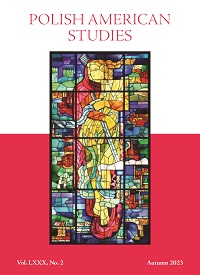
THE SWASTEK PRIZE Awarded for the best article in the 2022 volume of Polish American Studies
Anna Muller The Editorial Board members of Polish American Studies awarded the Swastek Prize for volume 79 (2022) to Anna Müller, “The People of Hamtramck: Some Reflections on Belonging, Agency, and Being Polish American” (PAS 79, no. 2). As one of the editors wrote, “This work integrates insightful interviews, captivating photographs, and an engagement with theoretical currents in the study of Polish Americans and of ethnic groups more broadly. Müller devotes attention to the impact of developments in Poland that shaped the worldview of migrants, then she maps those against generational experiences in Hamtramck. By adopting “tangible belonging” as a theoretical model, she brings some of the other articles in that issue into focus as well.”
Emerging Scholar Travel Awards
Iwona Flis
Iwona Flis is a PhD student at the University of Gdansk, Faculty of History, under Dr. Anna Mazurkiewicz. She is a fourth-year graduate student completing her dissertation next summer for which she has worked extensively in the PIASA archives documenting their history. She has already contributed to PAHA through her work on indexes to the CCSU’s scanned PAHA Newsletter, assisting in the PAHA NEH grant submission and currently is a member of the PAHA Board. She has authored and co-authored numerous publications and presented internationally on a variety of topics including Polish Diaspora organization, community archives and émigré women scholars. As the founder and president of the “Pomerania Archives” Foundation she has implemented several educational projects in history and archival science for community archives and NGO’s in Poland.
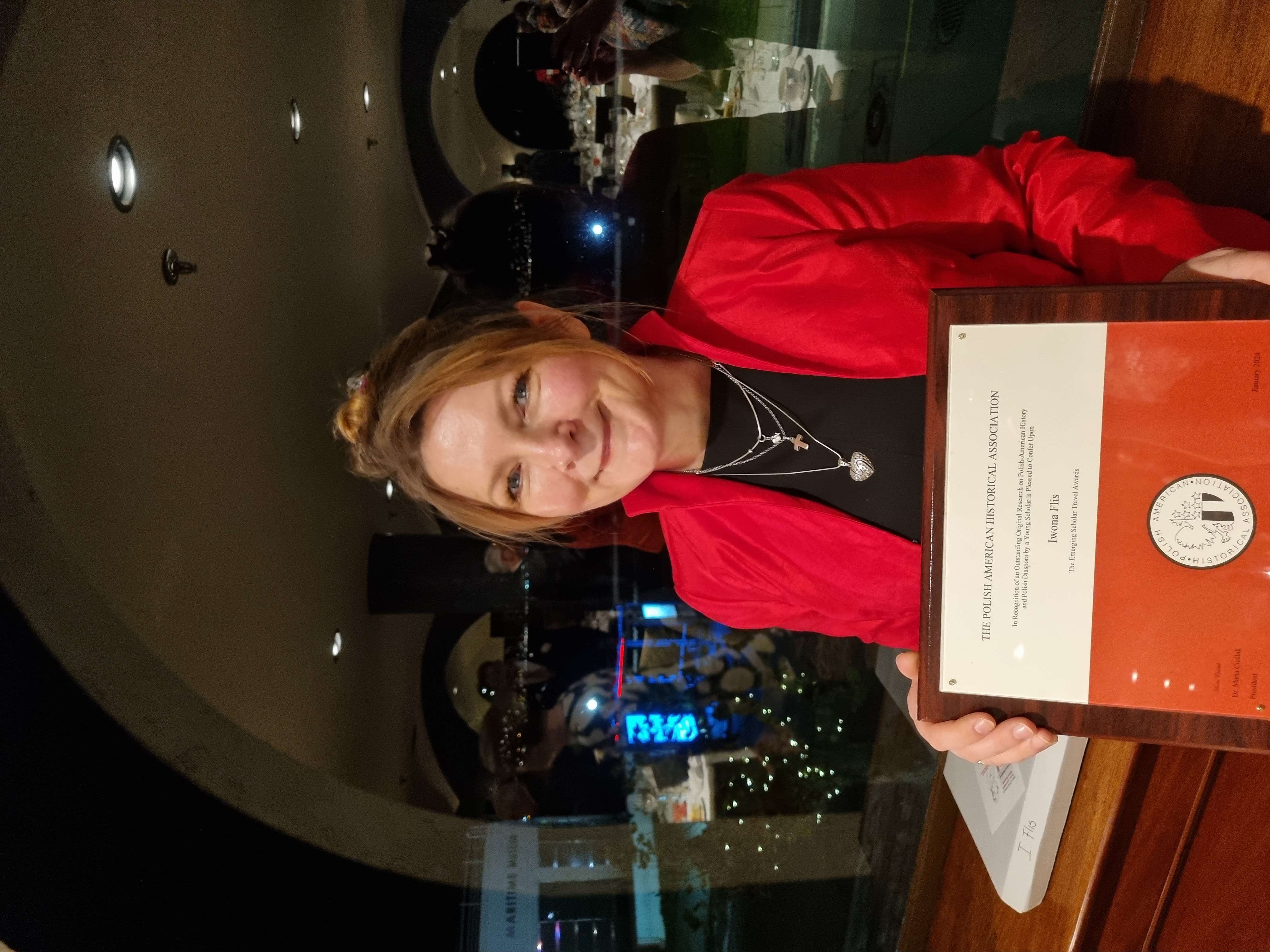
Benjamin Bax
Benjamin Bax is currently at Swansea University UK as part of a joint PhD program with the University of Central Oklahoma. He recently had a scholarly publication the Chronicles of Oklahoma for his research on the legacy of the Polish community of Harrah which is one of two papers he presented at the conference. His second presentation was on “Defiant Poles and the Displaced Persons Act” based on his thesis topic “From Kowalski to Kowalski: Internal Identity Formation and External Perception of the Polish Diaspora in American Popular Culture and Immigration Policy during the Cold War and Beyond.” He earned a Juris Doctor Degree from the University of Tulsa College of Law. He has contributed to PAHA’s “Objects that Speak” project.
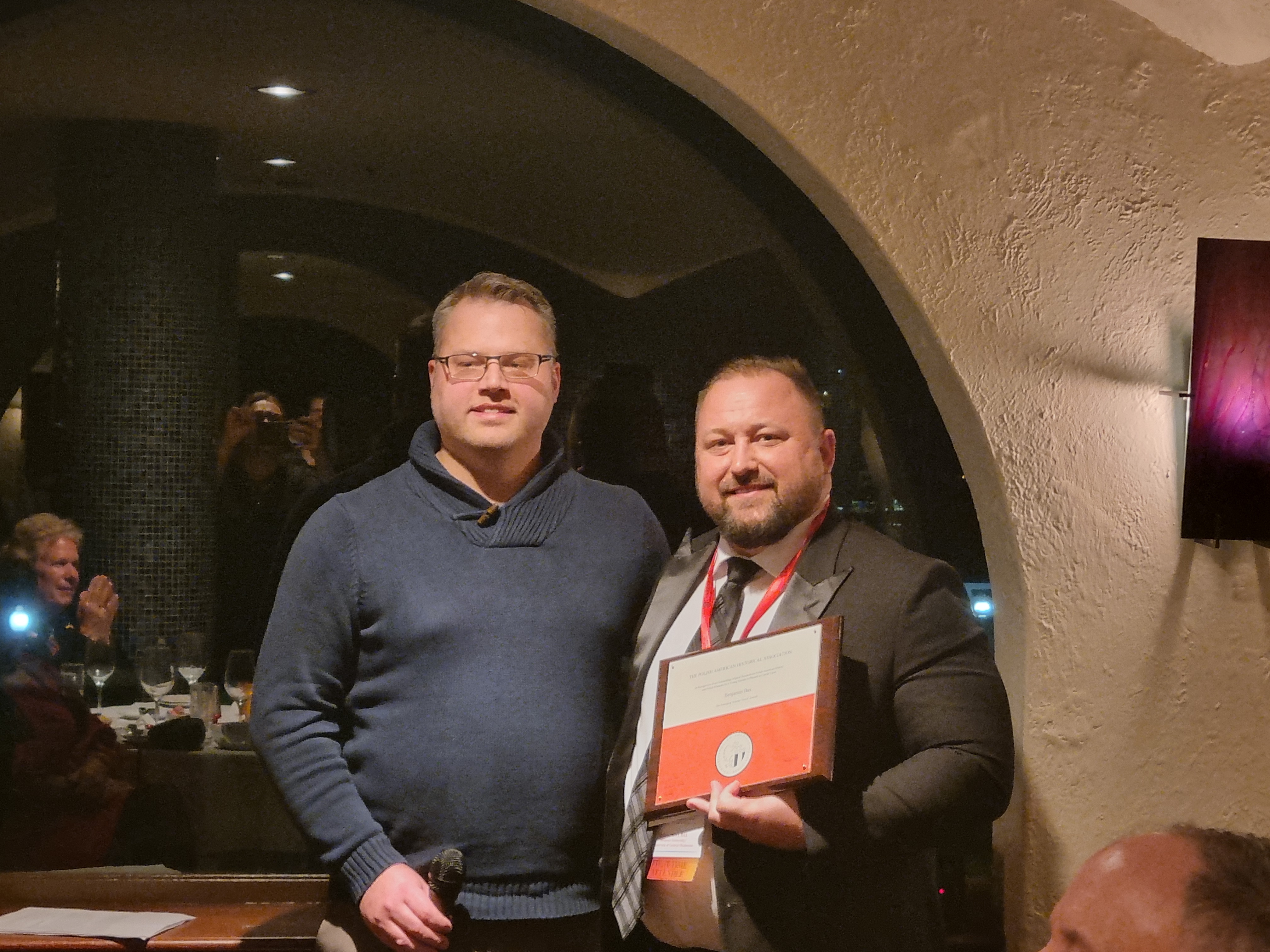
Mieczyslaw Haiman Award: offered to a scholar for sustained contribution to the study of Polish Americans
Ewa Barczyk
Ewa Barczyk has a distinguished career as a scholar and librarian across many decades and has made sustained contributions to the preservation of Polish sources as well as the study of Polish Americans.
Ewa served as the Director of Libraries and Associate Provost at the University of Wisconsin Milwaukee and pushed a focus on international librarianship, initiating international exchange programs for interns and scholars. She was invited to give lectures globally, especially in Far East and South Africa, and has authored and co-authored numerous scholarly publications and book chapters. She secured private funding and federal grants to digitize a massive collection of Polish photographs documenting Milwaukee's Polonia. Additionally, she is a board member of Polanki Inc., the Polish Women’s Cultural Club of Wisconsin, and is currently president of Polish American Librarians Association and serves as 2nd Vice President for the Polish American Historical Association. Ewa has also been recognized for her contributions with a Skalny Award, the Pula Distinguished Service award and the Medal Komisji Edukacji from Poland. Further, she was also recognized as the Polish American of the Year in Wisconsin (PAC).
As the editor of the recent publication, Footprints of Polonia, she led one of the most ambitious projects of the Polish American Historical Society successfully to completion. Through the global coronavirus pandemic, Ewa overcame great odds to communicate with hundreds of Polish Americans and scholars across multiple countries to secure entries and photographs for the guidebook, expanding our knowledge of the Polonian built environment and reinvigorating interest in Polish diasporic history in Canada, Mexico, United States, and Haiti. Since it has been printed, Ewa has attended numerous Polish American events to promote the book and interest in the sites. The Polish American Historical Association owes a great debt to Ewa for her decades of commitment to Polish American culture, and especially for her personal investment in Footprints of Polonia.
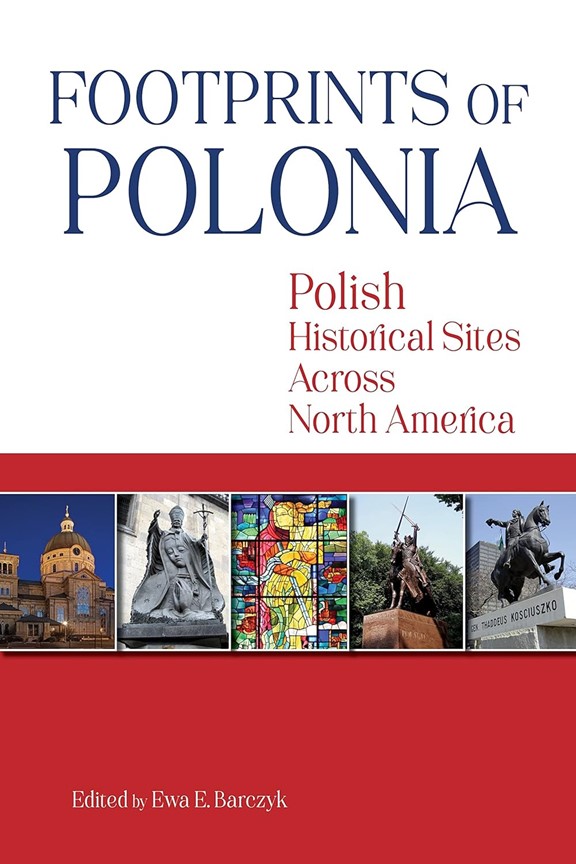
Oscar Halecki Prize recognizes an important book on the Polish experience in the United States.
Footprints of Polonia: Polish Historical Sites Across North America, edited by Ewa Barczyk. New York, NY: Hippocrene Books, 2022.
A citation by Wisława Szymborska opens Footprints of Polonia: "You can find the entire cosmos lurking in the least remarkable objects." Offering a survey of the Polish diaspora across North America and the Caribbean, Footprints of Polonia helps us to look anew at the churches, cemeteries, and statues that compose the Polonian built environment. Assembled in a remarkably illustrated volume, however, the "least remarkable" buildings and monuments are no longer individual sights, but transformed into a constellation that reveals broader patterns. Far from familiar, Footprints demonstrates how little we know about the Polish built environment and is a call for its study and preservation, especially as Polish architectural heritage in Rust Belt cities faces increasing threats of demolition. Opening new possibilities for public history and comparative study, Footprints is an essential starting point for any new work on the built environment of the Slavic diaspora.